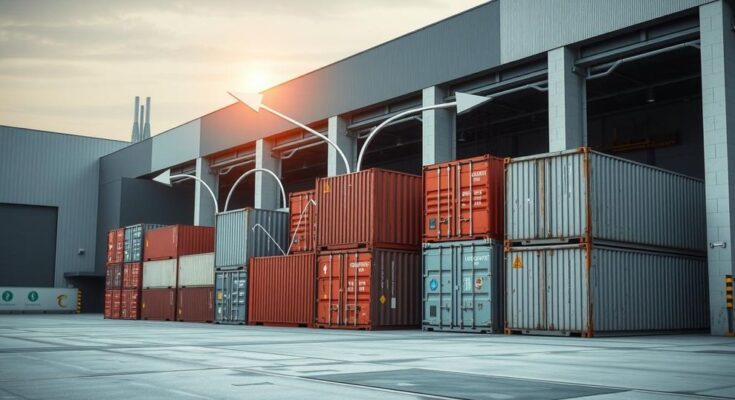In a spirited discussion surrounding President Trump’s expansive tariffs, economic experts examined their potential to reshape the post-war free trade era. Trump’s tariffs, meant to shield American industries, aimed at resurrecting manufacturing jobs by imposing duties on imports from China, Canada, and Mexico, and pushing average tariffs to levels unseen since the 1940s. The implications of these policies suggest a shift from globalization, stirring fears of higher consumer prices and economic retaliation from trading partners.
Participants in the debate, Meredith Crowley, Professor of Economics at the University of Cambridge, and Jeff Ferry, Chief Economist Emeritus at the Coalition for a Prosperous America, offered contrasting views on the tariffs’ outcomes. Crowley pointed out the burdens on lower-income individuals while Ferry argued for potential growth in the US manufacturing sector. This divergence set the stage for a deeper exploration of tariffs as tools of economic policy.
As the debate continued, the motivations behind Trump’s tariff strategy unraveled, revealing a desire to leverage America’s trade imbalance and rejuvenate domestic jobs. Ferry emphasized the historical context of the US’s vast trade deficit, highlighting Trump’s use of tariffs as a negotiating strength with nations like Canada and Mexico. Crowley countered by stating heightened tariffs could exacerbate job losses and economic uncertainty.
Concerns about retaliation from affected countries surfaced, with Ferry asserting that such measures could fuel US economic growth, despite potential price increases. Both experts acknowledged the complexities of global tariffs, with Crowley stressing the pain inflicted on lower-income consumers through higher prices on everyday goods. The ripple effects of these tariff policies could reshape economic landscapes well beyond American borders.
As the discussion shifted to globalization, Crowley and Ferry confronted the myth of universal benefits. Crowley illustrated how globalization has lifted millions out of poverty worldwide, contrasting with the stagnation of wages in the US. She argued for targeted industrial policies over broad tariffs while Ferry maintained that protecting jobs in the face of competition from lower-wage nations is essential.
Ultimately, the debate revealed a deep schism in understanding trade policy’s past, present, and future. Crowley warned that erecting trade barriers could create monopolistic profits, harming consumers in the long run. In contrast, Ferry remained optimistic that increased protectionism could lead to stronger industrial growth domestically and a more robust, self-reliant economy.
President Trump’s tariffs proposed a significant shift in global trade, aiming to protect American industries and revive job growth. Experts Meredith Crowley and Jeff Ferry debated the effectiveness of these tariffs, discussing their potential to impact consumer prices and provoke retaliation from other nations. The discussion revealed a divide in trade policy philosophy, with voices on both sides offering insights into the broader implications for the economy.
The discussion illuminated the complexities surrounding Trump’s tariffs and their implications for the future of global trade. While some see potential growth and the revival of American manufacturing, others warn of the negative repercussions on consumers and global relationships. The contrasting perspectives highlight the ongoing debate of balancing protectionism with globalization’s benefits in an evolving economic landscape.
Original Source: www.bbc.com



